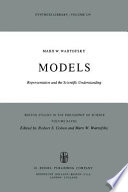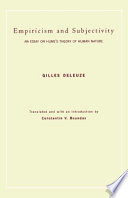 For how is it possible we can separate what is not distinguishable, or distinguish what is not different? In order therefore to know, whether abstraction implies a separation, we need only consider it in this view, and examine, whether all the circumstances,... For how is it possible we can separate what is not distinguishable, or distinguish what is not different? In order therefore to know, whether abstraction implies a separation, we need only consider it in this view, and examine, whether all the circumstances,...  Dogmatism and Evolution: Studies in Modern Philosophy - Page 34by Theodore De Laguna, Grace Mead Andrus De Laguna - 1910 - 259 pagesFull view Dogmatism and Evolution: Studies in Modern Philosophy - Page 34by Theodore De Laguna, Grace Mead Andrus De Laguna - 1910 - 259 pagesFull view - About this book
 | David Hume - 1854 - 468 pages
...forming a precise notion of degrees of each, we may prove this by the three following arguments. First, we have observed, that whatever objects are different...those, which we retain as essential parts of them. But it is evident at first sight, that the precise length of a line is not different nor distinguishable... | |
 | David Hume - 1874 - 604 pages
...distinguishable, and that whatever objects are distinguishable are separable by the thought and imagination.i And we may here add, that these propositions are equally...distinguishable and different from those, which we F retain as essential parts of them. But 'tis evident at first sight, that the precise length of a... | |
 | David Hume - 1888 - 756 pages
...notion of degrees of each; we may prove this by the three following arguments. First, We have observ'd, that whatever objects are different are distinguishable,...whether abstraction implies a separation, we need only f "consider it in this view, and examine, whether all the circum\ stances, which we abstract from in... | |
 | David Hume - 1893 - 190 pages
...forming a precise notion of degrees of each ; we may prove this by the three following arguments. First, we have observed that whatever objects are different...those which we retain as essential parts of them. But it is evident at first sight that the precise length of a line is not different nor distinguishable... | |
 | Marx W. Wartofsky - 1979 - 428 pages
...thought and imagination. But, conversely, he adds that whatever is distinguishable must therefore be different, "for how is it possible we can separate...is not distinguishable, or distinguish what is not different?"27 But the 'distinguishables' here are not atomic perceptions as such; they are degrees... | |
 | D. M. Armstrong - 1989 - 174 pages
...this was anticipated by Hume in the Treatise, in unsatisfactory psychological guise: We have observed, whatever objects are different are distinguishable,...distinguishable, or distinguish what is not different? (Book I, Part I, Section VII) The last sentence looks forward to Kripke. V DISPOSITIONS, POWERS AND... | |
 | Gilles Deleuze - 1991 - 188 pages
...distinguishable and everything distinguishable is different." This is the principle of difference. "For how is it possible we can separate what is not distinguishable, or distinguish what is not different?"6 Therefore, experience is succession, or the movement of separable ideas, insofar as they... | |
| |